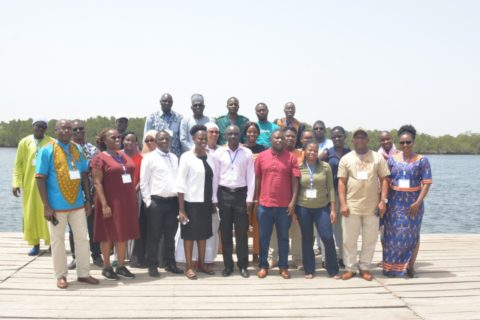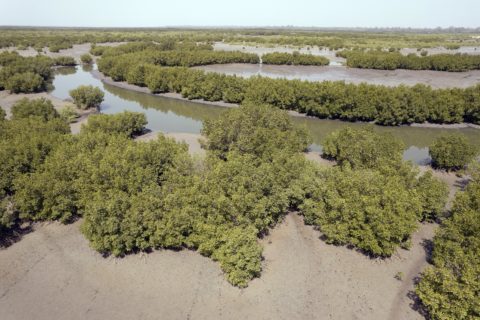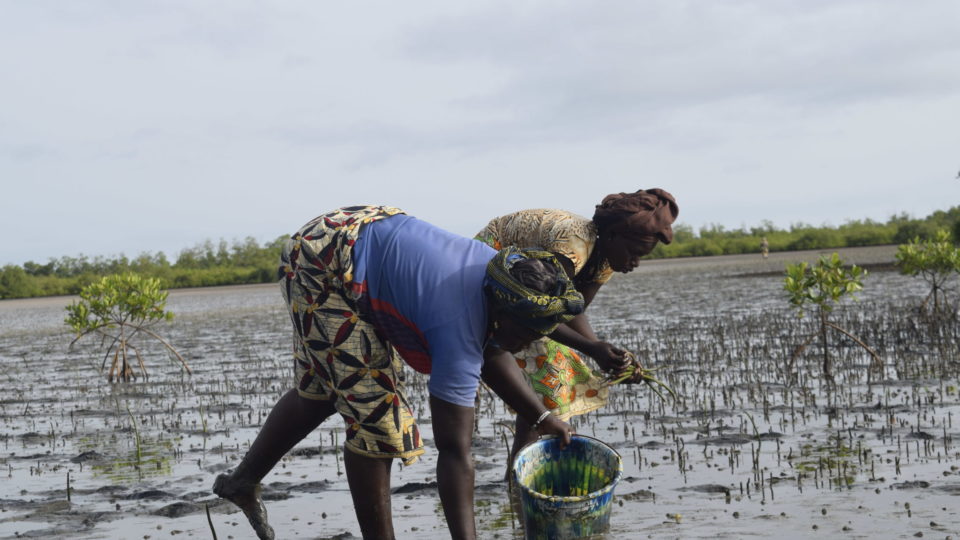Mangroves are among the most productive and valuable ecosystems on earth and have a significant ecological, economic and socio-cultural role in the lives of coastal communities, especially in Africa. In the past decades, Africa’s mangroves have been facing many challenges ranging from agricultural development for rice and large-scale irrigation schemes to oil and gas exploitation and bauxite mining and infrastructure development.
Results from recently concluded socio-economic profiles in the Western Indian Ocean (WIO) region showed that while there is an increased awareness of the need to address these challenges, there is poor sharing, dissemination and uptake of good practices within the ‘mangrove community’. As a result, many valuable lessons and experiences to inspire change fail to trickle down to other key mangrove restoration stakeholders in the region.

Recognising these concerns, the Save Our Mangroves Now! Initiative in collaboration with the Mangrove Capital Africa Programme organised a pioneer exchange visit between the Western Indian Ocean and the Atlantic Ocean regions in Senegal from 13 to 18 March 2022. Held under the theme ‘Learning and Sharing: Challenges and Opportunities for Successful Mangrove Conservation in Africa’ this mission brought together mangrove conservation practitioners representing mangrove adjacent communities, governments, Civil Society Organisations and researchers from Kenya, Madagascar, Mozambique and Tanzania (WIO) and Senegal, Guinea Bissau, Sierra Leone, Liberia and Gambia (Atlantic Coast).
Field excursions in the Saloum delta and the Bamboung Marine Protected Area provided practical examples of community involvement in mangrove conservation through the provision of funding for livelihood diversification, resource enhancement and coastal protection. In addition, successful restoration approaches such as natural mangrove regeneration served as inspiration for country teams to strengthen their restoration processes.

Moreover, experiences on the objectives, governance structures, challenges and achievements of sub-regional platforms and networks such as the Western Indian Ocean Mangrove Network and the Saloum delta mangrove platform spurred discussions and ideas toward the establishment of an Africa-wide outfit that would provide for collaboration, regular exchanges, learning and sharing of solutions to challenges faced by mangrove forests.
According to Diana Kishiki, Mangrove Focal Point Officer with Kenya Forest Service, governance of mangrove ecosystems is essential to all key stakeholders as this ensures that policies, strategies, action plans and programmes are well coordinated and the resources are managed effectively and efficiently. “Collaboration and partnerships with sound guiding principles ensure that synergies are built and stakeholders actively undertake their roles so that the mangroves are well conserved and managed whilst considering different institutional mandates and responsibilities,” said Kishiki.
“A regional platform provides an important space for upscaling and replication of best applicable practices across the two regions in Africa. Moreover, it will help foster relations across the key mangrove actors by ensuring there is an exchange and flow of knowledge and information, provision for networking, and creation of awareness and sensitisation about these fragile ecosystems. As the world advances in technology and innovation to support the management of information concerning mangroves, this platform can provide an enabling environment to showcase such functional systems,” stated Kishiki.
A steering committee was nominated to help define the platform’s governance which will be further discussed and agreed on in a follow-up workshop that will be held in Tanzania’s Rufiji delta in July 2022.


Leave a comment